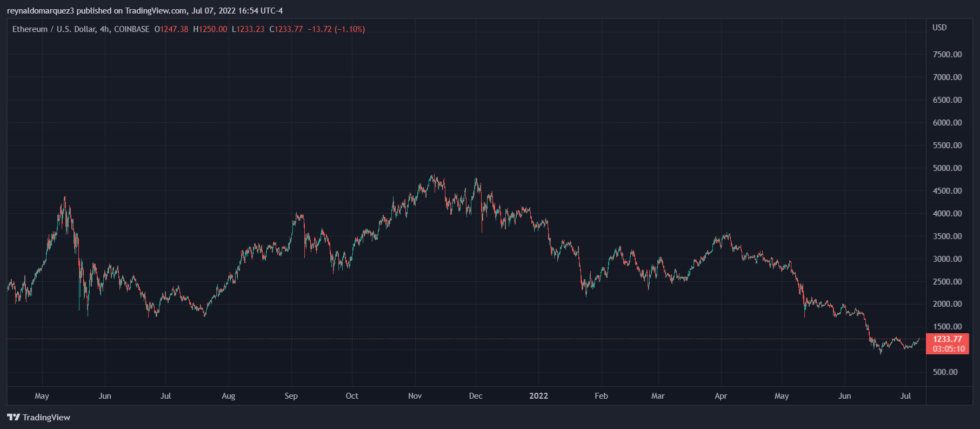Ethereum’s decentralized finance protocol MakerDAO proposed a historic vote to connect a U.S. bank to its platform, the Huntingdon Valley Bank (HVB). The community has approved the proposal and the financial entity will be able to access an initial debt ceiling of $100 million.
Related Reading | NFTs Enter A New Era As Solana Closes The Gap With Ethereum
The new MakerDAO Vault Type with the financial institution was approved with 87% of the vote. This constituted over 117,000 MKR tokens in contrast with the 4,200 used to oppose the proposal. Therein, the proponents explained:
Huntingdon Valley Bank, a Pennsylvania-based community bank, is seeking a 100 million DAI debt ceiling participation facility to support the growth of existing businesses and to grow new businesses. HVB and RWA Master Participation Trust (established for the benefit of Maker) will not have a borrower-lender relationship.
In step, the U.S. bank will be able to access liquidity in the form of the stablecoin DAI in exchange “for the sale of participation interests in the underlying whole loans” from HVB. The financial institution is focused on creating fixed and floating residential and commercial mortgages.
This partnership will enable the bank to submit potential lust in which MakerDAO can participate via the RWA Master Participation Trust. Thus, the DeFi protocol can have a stake and real-world participation in this process.
The voting and the partnership with the Huntingdon Valley Bank are historical as it is the first DeFi protocol will fund loans via a U.S.-based financial institution. Via its Twitter handle, Maker clarified:
When HVB proposes loans for participation, Ankura Trust, the calculation agent, will ensure that proposed loan participations are eligible for funding. If participations conform, the Trust will acquire a (maximum) 50% interest in the underlying loan by executing a Certificate of Participation in exchange for cash (…).
How MakerDAO Can Disrupt The Financial Loan System In The U.S.
There are risks specified in the proposal, but proponents believe the HVB will have enough skin in the game to mitigate them. The financial institution has a good relationship with U.S. regulators, the proposal claims, and operates with a “conservative” business model.
In this particular scenario, benefits outweigh potential risks. The MakerDAO voting seems to reflect this perception.
Related Reading | Huobi Expansion Highly Likely After It Receives FinCEN License
The cooperation with a traditional financial institution could pave the way for future innovation and for the expansion of MakerDAO. The DeFi protocol and its community will have access to real-world assets, and the possibility to create a liquidity pool for HVB. In addition:
Opportunities are wholesale lending, scale, alignment, symbiosis, and a turn-key solution (…) If approved, this agreement between a DeFi protocol and a US bank would forge a new chapter of history and send a signal to institutional counterparties of what is to come. This deal will represent the first large-scale partnership between a regulated US bank and DeFi.


